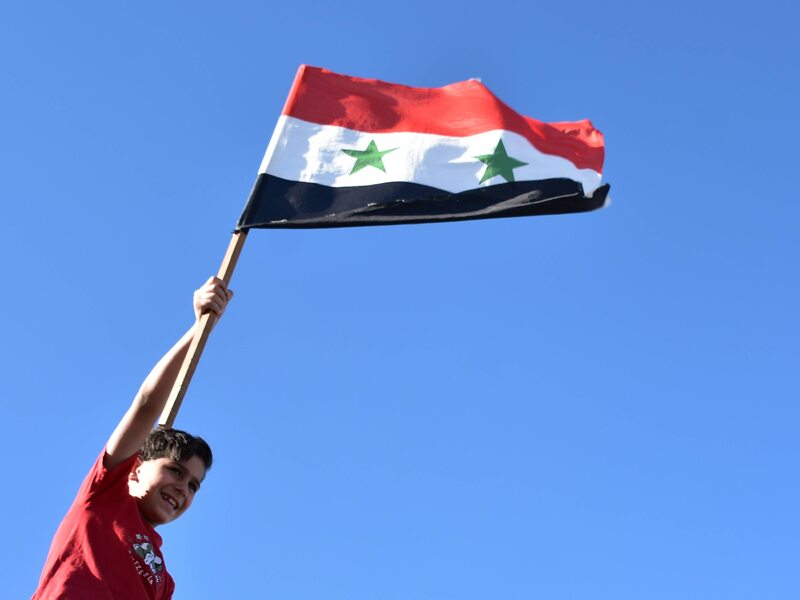
His diocese covers the provinces of Hasakeh and Deir el-Zor in northeastern Syria near the border with Turkey, where hostilities escalated in the last week of December. In a statement to the local Hawar News agency, the hierarch noted that this is a clear violation of international conventions and religious and humanitarian standards.
Since December 23 last year, the Turkish army has intensified its attacks in the region, which has long been the scene of intense fighting. In recent days, at least 10 civilians have been killed, dozens of people have been injured, a lot of destruction and material damage has been caused to the population's property and infrastructure as a result of the shooting.
Referring to the recent Turkish bombardment in the area, the archbishop noted that “this year is different from previous years because of the ongoing wars in the world that target entire ethnic groups, these are inhumane conflicts that violate international statutes and treaties.” .” According to him, the military attacks “target all targets, regardless”. The Turkish occupiers continue to bombard the north and east of the country, targeting “accidentally” many objects: offices, workplaces, hospitals, “destroying the sources of life in this region”, he emphasized. Reverend Amsih noted.
He noted that this latest wave of violence represents a “new tragedy” to be added to the other tragedies that have befallen Syrians in recent years. He noted that during the Christmas period, Turkey did not stop brutal attacks, but on the contrary, intensified them. “The tragedy of the Syrian people is enormous, but Turkey does not know humanity,” the hierarch said. At the same time, he expressed hope that the new year, which has just begun, may “bring security and peace to all of Syria.”
Turkish attacks
Recently, Turkey attacked 71 sites linked to the Kurdish group in Syria and northern Iraq in retaliation for what Ankara said was the death of 12 of its soldiers in Iraq, who were killed in a battle with Kurdistan Workers' Party (PPK) militias. Turkish Defense Minister Yasar Guler wrote on X's website that “our pain is great, but our resolve is complete,” adding: “We have avenged (the death of) our precious children and will continue to do so.”
Kurds in Syria and Iraq have long been at loggerheads with Iran and Turkey, whose rocket and drone attacks have caused many casualties and severe infrastructure damage in areas that have already suffered heavy bombing and military incursions. Tehran is focusing its activities on Iraqi Kurdistan, where it says there are Kurdish resistance bases and leading activists associated with the opposition. A sharp crackdown began there in September 2022, almost a day after the killing of Mahsa Amin, a 22-year-old Iranian Kurdish woman. At the same time, Ankara accelerated its foreign operations, considering the Kurdish zone in Syria as the cradle of the PPK. The General Protection Units (YPG), a Kurdish militia operating in the country, committed an attack in Istanbul on November 13 last year, as a result of which 6 people were killed and dozens were injured.
According to the Syrian Democratic Forces (SDF), in 2023 Turkey carried out 798 attacks on areas controlled by Syrian armed groups, including 103 using drones and drones, hitting 74 civilian structures and infrastructure related to the oil industry. In addition, Ankara and its allied forces carried out 578 operations using heavy weapons (including artillery) and 25 attacks using light weapons and sharp weapons, as well as 2 attacks using improvised explosive devices and anti-personnel mines. The SDF also reported that 173 of its fighters were killed in attacks by Turkey, Islamic State and the Syrian government. According to the organization, at least 39 civilians were killed, including 11 children.
Also read:
Exchange of fire between Syria and Israel
(translate tags)Mar Morris Amsih
